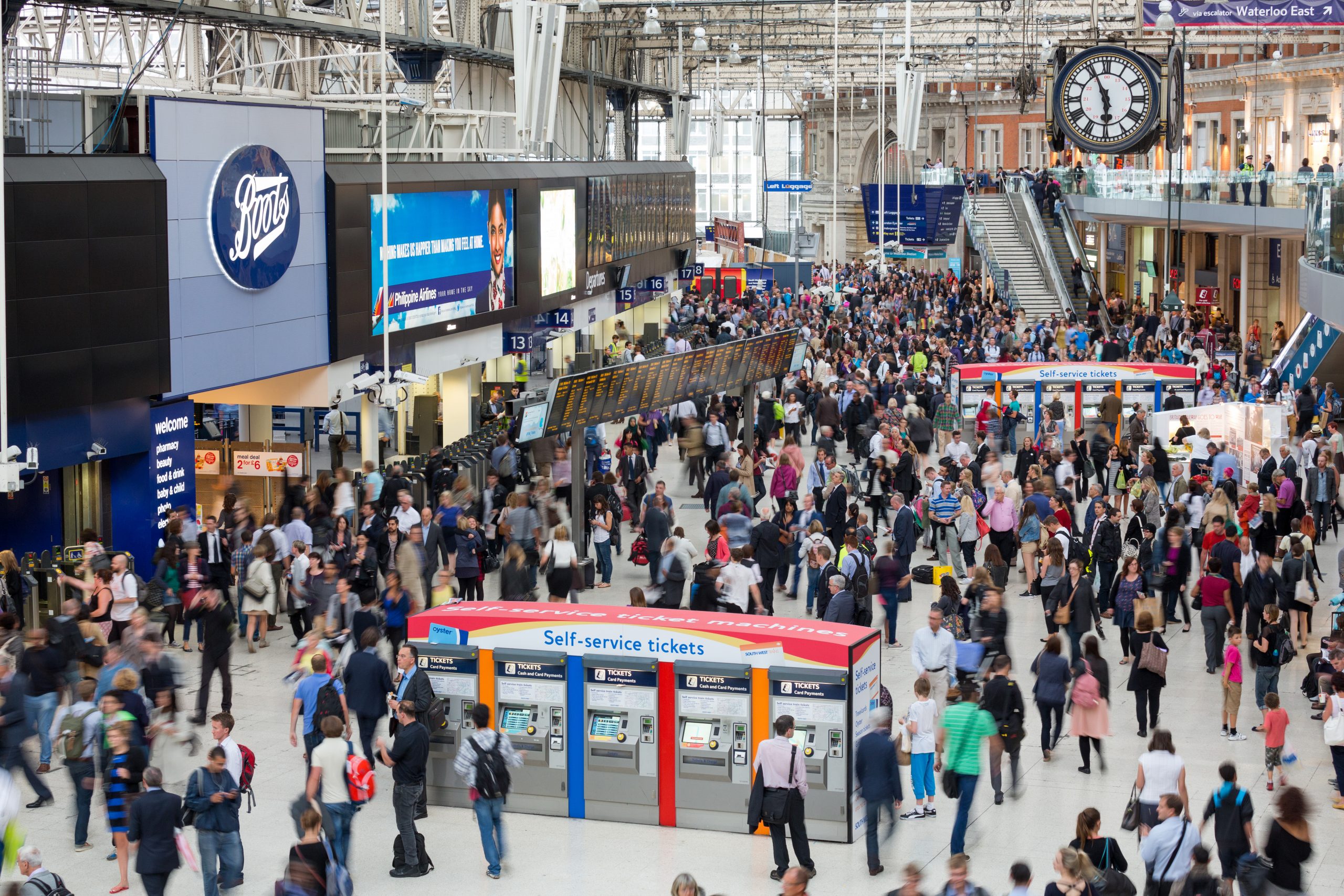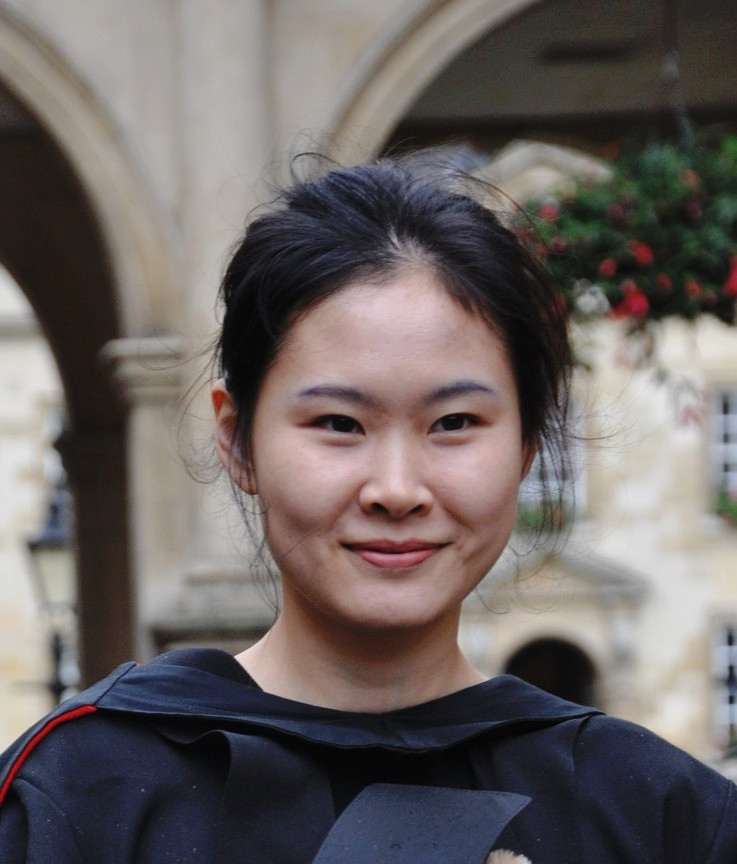
Ruoyun Hui studies the genetic evolution of diverse populations.
We are trying to investigate the history of how populations have changed over time and to infer how the indigenous population has related to other populations.
Ruoyun Hui
Ruoyun Hui [2015] believes that an understanding of the past is essential to interpret what we observe today. As student of Biology, this means she has been drawn to evolutionary history. Her PhD in Evolutionary Genetics focuses on using whole-genome sequence data to reconstruct demographic histories of diverse populations, something which may be relevant to anthropology. This work provides the necessary background for detecting how the genome has adapted over time through natural selection. She says the methods can be applied to address various questions in epidemiology, agriculture, cancer progression among others.
Ruoyun's own ‘evolution’ started with a childhood spent in the relatively small city of Puyang in central China where she was born.
At school Ruoyun opted for science because she wanted to avoid ideological education. Before she went to secondary school she volunteered with her mother for a local education charity, providing books for those living in poorer regions. This sowed the seeds of an enduring interest in voluntary work which allowed her to meet communities she wouldn’t normally be in contact with as well as helping to improve the lives of others, something she plans to continue while she studies for her PhD.
Once she got to secondary school there was no time for extra-curricular activities, however. The school day started at 6am with a reading session and went through to 10pm. Students were allowed just one day off every two weeks and got homework on that day.
Hong Kong
When Ruoyun left secondary school she wasn't sure if she wanted to do a Physics or Biology degree. She chose to go to the Chinese University of Hong Kong to study Biology. She had visited Hong Kong in 2007 and had been impressed by its lively mix of traditional Chinese and western culture. She also liked being exposed to different ideas and opinions and to Hong Kong's different rules and laws.
Her degree lasted four years. In her final year she did a research project on marine ecology, studying the response of barnacles in Taiwan and Hong Kong to heat shock. “In an era of global warming, we were interested in seeing how they would respond to possible heat stress,” says Ruoyun. She was attracted to the project because she was interested in ecology and wanted to get experience of fieldwork.
After graduating with a first class degree in Biology in 2013, Ruoyun returned to China to do an internship at a Chinese NGO specialising in gender and rural development. The internship was sponsored by her university. She met with people living in rural communities and volunteered as a small group leader at a summer camp organised by the Shaanxi Gender Development Solution. That included helping to host children's activities in villages; recording interviews during a preliminary assessment of a solar power project; and taking the minutes during a workshop for villagers on developing projects and mobilising resources.
Ruoyun wanted to continue her academic work so she applied to do a masters in Evolution, Ecology and Systematics at Ludwig Maximilian University of Munich. In addition to being interested in the programme, she had been in the Netherlands for a summer course during her undergraduate degree and was keen to learn more about Europe. The two-year course was taught in English. Towards the end she worked with a genetics group which focused on ancient DNA. Her project reconstructed the genomes of the pathogen responsible for Black Death which was isolated from medieval mass graves. “We were trying to model the spread route of the Black Death by analysing historical genomes,” she says.
Genome analysis
While in Germany, Ruoyun applied to do her PhD at the University of Cambridge. She was interviewed for a Gates Cambridge Scholarship by Skype.
She is currently working on a project to analyse the genomes of people from diverse populations. "We are trying to investigate the history of how populations have changed over time and to infer how the indigenous population has related to other populations. We might also look at the role of things like environmental stresses faced by different populations in their history," says Ruoyun. "Evolutionary history helps us to understand human diversity. Medical research tends to focus on small groups who are not representative of the whole population. We believe the methodology we are using could be applied to other genomes, such as viruses or the evolution of cancer cells."
She says her main focus is on data analysis. She adds that without her Gates Cambridge Scholarship she could not have studied at Cambridge and says the Scholarship has also introduced her to "amazing people with lots of different perspectives" who have made her think about issues she had not focused on before. She has found the experience very enriching and hopes to continue along an academic path in future.
Picture credit of Waterloo station: Wikipedia.

Ruoyun Hui
- Alumni
- China
- 2015 PhD Genetics
- Peterhouse
I was born and raised in the small city of Puyang in central China. I believe that an understanding of the past is essential to interpret what we observe today; as a student of biology, the idea naturally transforms into a fascination with evolutionary history. I am going to pursue a PhD in Genetics under the supervision of Dr. Aylwyn Scally to study the evolution of great apes and other primates. We aim to use whole-genome sequence data to reconstruct demographic and phylogenetic histories. Not only interesting on its own, such knowledge also sets the background for detecting signatures of natural selection in the genome, thus shedding light on human evolution. The methods we develop might be applied to analyze other study systems, addressing various questions in epidemiology, agriculture, cancer progression and so on.Beyond my own research, I also wish to be connected to more people's lives, and to help them realize their courage within. I am constantly seeking ways to integrate my scientific enthusiasm with social responsibility. Hopefully I can explore further along this path with the prestigious community at Gates Cambridge.Interests: hiking, museums of history, science fiction, traditional markets, rural education, peer counseling, people watching.
Previous Education
Chinese Univ Of Hong Kong
Ludwig-Maximilians-Universitat Munchen












